Related Research Articles

Graham Parker is an English singer-songwriter, who is best known as the lead singer of the British band Graham Parker & the Rumour.
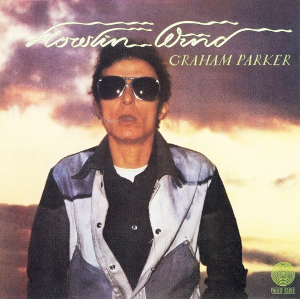
Howlin' Wind is the debut album by English singer-songwriter Graham Parker and his band the Rumour, released in 1976. The Rumour are mainly former pub rock scene musicians, including guitarist Brinsley Schwarz and keyboardist Bob Andrews of the band Brinsley Schwarz; Parker's recent jobs included pumping gas at a filling station. The music is a blend of rock and roll, R&B, reggae and folk music, behind Parker's searingly intelligent lyrics and passionate vocals. Critics likened Parker's spirit to British punk rock, then in its early stage, and retrospectively to that of singer-songwriters Elvis Costello and Joe Jackson, who would release their debut records within a few years of Howlin' Wind.
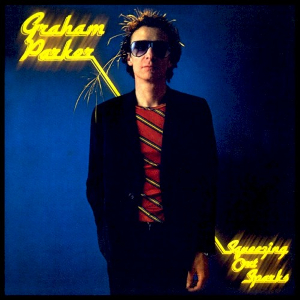
Squeezing Out Sparks is the fourth studio album by English singer-songwriter Graham Parker and his band the Rumour. The album was released in March 1979. Although the Rumour were not credited on the cover, their name was included on the album label.

The Rumour were an English rock band in the late 1970s and early 1980s. They are best known as the backup band for Graham Parker, whose early records were credited to Graham Parker & The Rumour. However, The Rumour were also recording artists in their own right, releasing three albums: Max (1977), Frogs, Sprouts, Clogs and Krauts (1979), and Purity of Essence (1980).
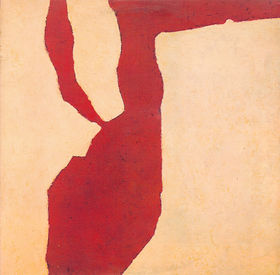
The Up Escalator is an album by Graham Parker and The Rumour and was released on May 23, 1980 by Stiff Records as LP and as cassette. In the USA, the album was released by Arista. Released after Parker's successful 1979 album Squeezing Out Sparks, the album features production by Jimmy Iovine.

Steady Nerves is a 1985 album by Graham Parker and The Shot.
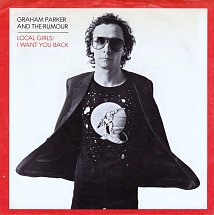
"Local Girls" is a song by British rock musician Graham Parker, recorded with his backing band the Rumour. The song was released on his 1979 album, Squeezing Out Sparks.

Another Grey Area is the first solo album by Graham Parker. It was released in 1982 on the Arista label. The album was produced by Jack Douglas and Graham Parker, and features Nicky Hopkins on acoustic piano.

"From a Whisper to a Scream" is a song written by new wave musician Elvis Costello and performed by Costello and the Attractions on their 1981 album, Trust. With lyrics referencing drinking, the song notably features a guest vocal from Squeeze frontman and songwriter Glenn Tilbrook as well as a guitar part from ex-Rumour guitarist Martin Belmont.

The Parkerilla is a 1978 live double album by Graham Parker and The Rumour. It was recorded at Winter Gardens, Bournemouth, Manchester Opera House, Apollo Theatre, Oxford and The Palladium, New York City; and mixed at Rockfield Studios, Wales.

Let It Rock! is the Connection's first full-length LP, released in June 2013. While all rock and roll, the songs on Let It Rock! are otherwise diverse in nature, and one of them incorporates touches of country music. A single, "Crawling from the Wreckage ", was released before the album as a 7-inch single.

"Mercury Poisoning" is a song written by rock musician Graham Parker and performed by Graham Parker and the Rumour. Inspired by Parker's frustration with his record company, Mercury Records, the song was released as a promotional single by Parker's new label, Arista Records, in February 1979. Because of the song's controversial nature, it was pulled from its planned release as the B-side to Parker's 1979 single, "Protection."

"Discovering Japan" is a song by British rock musician Graham Parker, recorded with his backing band the Rumour. The song was released on his 1979 album, Squeezing Out Sparks.
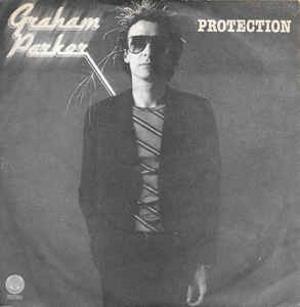
"Protection" is a song by British rock musician Graham Parker, recorded with his backing band the Rumour. The song was released on his 1979 album, Squeezing Out Sparks.
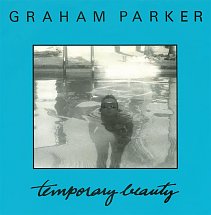
"Temporary Beauty" is a song by British rock musician Graham Parker. The song was released on his 1982 album, Another Grey Area. With lyrics described by Parker as "put-downs", "Temporary Beauty" is a rock song with vocals that Parker noted as an example of his better singing compared to previous albums.

"You Can't Be Too Strong" is a song by British rock musician Graham Parker, recorded with his backing band the Rumour. The song was released on his 1979 album, Squeezing Out Sparks. Written about abortion, the song originated as a country-style shuffle before Parker and producer Jack Nitzsche changed it to a slower acoustic ballad.
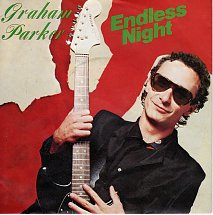
"Endless Night" is a song written by rock musician Graham Parker and performed by Graham Parker and the Rumour for their 1980 studio album The Up Escalator. Originally written for the 1980 film Cruising, "Endless Night" features lyrics about aging in rock 'n' roll. The song notably featured backing vocals from musician and Parker fan Bruce Springsteen.
"Passion Is No Ordinary Word" is a song by British rock musician Graham Parker, recorded with his backing band the Rumour. The song was released on his 1979 album, Squeezing Out Sparks. Written about faking one's emotion, the song features a stripped-down arrangement.

"Wake Up " is a song written by British rock musician Graham Parker and performed by Graham Parker and the Shot. Inspired by Smokey Robinson, the song was crucial in convincing Elektra Records to allow Parker and producer William Wittman to record a full album. The song is also notable for Parker's breathy singing and its lush arrangement.

"Stupefaction" is a song written by rock musician Graham Parker and performed by Graham Parker and the Rumour for their 1980 studio album The Up Escalator. Inspired by Parker's time spent in Los Angeles, the song features sardonic lyrics that were based on an observation by Parker and his manager in the city.
References
- 1 2 ""Parker's Still Pretty Angry," by J.D. Considine". homepages.uni-regensburg.de. Retrieved 16 June 2020.
- ↑ Henke, James. "Graham Parker: Rumour Becomes Fact". Rolling Stone. Retrieved 31 January 2019.
- ↑ Parker, Graham. "GP Answers Your Questions, Part 13". grahamparker.net. Retrieved 31 January 2019.
- 1 2 Swanson, Dave. "10 Best Graham Parker Songs". Diffuser.fm. Retrieved 1 July 2020.
- 1 2 Borack, John M. "Graham Parker Is No Ordinary Dude". Goldmine. Retrieved 16 May 2019.